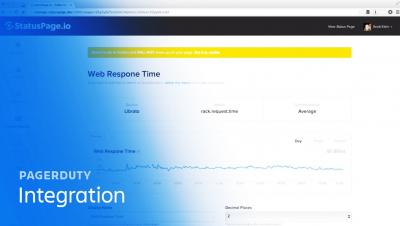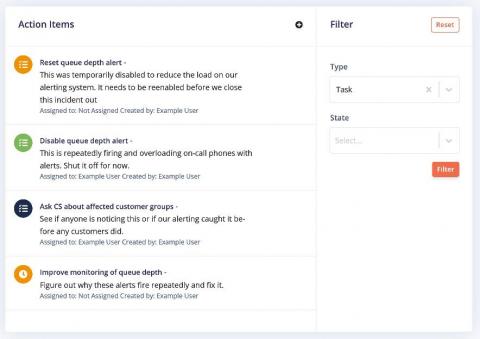Operations | Monitoring | ITSM | DevOps | Cloud
Alerting
Custom Alerts Using Prometheus Queries
Prometheus is an open-source system for monitoring and alerting originally developed by Soundcloud. It moved to Cloud Native Computing Federation (CNCF) in 2016 and became one of the most popular projects after Kubernetes. It can monitor everything from an entire Linux server to a stand-alone web server, a database service or a single process. In Prometheus terminology, the things it monitors are called Targets. Each unit of a target is called a metric.
Statuspage PagerDuty integration
Statuspage third-party metrics overview
How We Use PagerDuty for Emergency Response
PagerDuty is known as the platform for driving real-time work, and with the current global spread of COVID-19, many of our customers have been asking how we leverage PagerDuty internally to intelligently coordinate a response to emergency situations (such as this) as they arise. PagerDuty customers primarily leverage our platform for coordinating an incident response process when technical issues happen, such as a bad deployment, network degradation or failed hardware.
Announcing Ticketing
Incidents come up quickly and tracking critical tasks to be done in the moment and after an incident is resolved it can be challenging to keep up with what was done by who during an incident and what tasks still need to be completed. In an effort to continue simplifying your incident response process today we are happy to announce an overhaul of ticketing and task tracking on FireHydrant along with a major overhaul of our JIRA integration.
The Incident Response Approach to Remote Work
The Ever-Changing IT Industry
Information technology (IT) never slows to a standstill. Technological change disrupts current processes or operations, requiring organizations to make alterations to IT spending. Deviating from legacy technology to 21st century advancements isn’t an option, it’s a requirement! Through automation and powerful integrations, organizations can breathe freely.
Protecting critical business systems and ensuring business continuity in the age of COVID-19
As we are all adjusting to this new reality of living and working in the time of COVID-19, the coronavirus, there is so much that we need to take into consideration. Clearly, the health and safety of our family and colleagues is priority number one – and the local authorities have provided guidance on how to maximize protection.
Lessons in Distributed Communication From Incident Response
As reported cases of novel coronavirus (COVID-19) continue to rise around the world, many companies are increasingly shifting to using remote work as a way of minimizing exposure for their workforce. But even if some of these companies have been remote-friendly in the past, many organizations are currently struggling to figure out how to shift their operations to becoming entirely remote.










